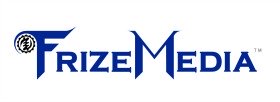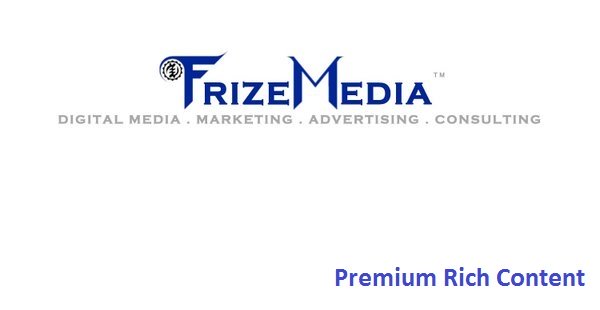Small Business Advertising
Advice Resources And Social Media Marketing
To Hype or Not to Hype? The Fine Line Between Enthusiasm and Manipulation

Understanding Hype in Communication
One of the discussion lists I follow recently had a heated debate about the role of hype in writing.
Hype, by nature, is designed to generate emotion. We see it most often in sales copy, flashy headlines, exaggerated claims, and over-the-top promises meant to grab attention. But hype isn’t limited to marketing; it also creeps into internal communications, especially in staff newsletters when the wrong people get involved (think: forced cheerleading from leadership that feels inauthentic).
As the discussion unfolded, a key distinction emerged: not all hype is created equal. Like cholesterol, there’s a good kind and a bad kind.
Good Hype vs. Bad Hype
Good Hype: Authentic Enthusiasm
Good hype stems from genuine excitement. It’s sincere, infectious, and rooted in a real desire to share something valuable.
Examples of Good Hype:
- A team leader celebrating a major project milestone: "I’m thrilled to announce that our team just delivered the project two weeks early—thanks to everyone’s incredible effort!"
- A travel blogger describing a breathtaking destination: "The sunrise over Santorini isn’t just beautiful—it’s pure magic. If you ever get the chance, you have to experience it!"
- A product developer introducing a new feature: "This update is a game-changer. It solves the biggest pain point our users have been complaining about!"
Good hype works because it aligns with the audience’s interests. It doesn’t feel forced, it feels like a natural expression of passion.
Bad Hype: Manipulative Overpromising
Bad hype, on the other hand, is self-serving and deceptive. It prioritizes the writer’s agenda over the reader’s needs, often resorting to exaggerated language, false urgency, or empty promises.

Examples of Bad Hype:
- A spam email screaming: "YOU WON’T BELIEVE THIS ONCE-IN-A-LIFETIME OFFER!!! ACT NOW BEFORE IT’S GONE!!!!"
- A corporate memo from leadership: "We’re so excited about these new ‘efficiency measures’ (aka layoffs) that will empower our company to thrive!"
- A salesperson pushing a shady deal: "This vacation package is absolutely free—just sit through a quick 90-minute presentation!"
Bad hype erodes trust. Readers can sense when enthusiasm is fabricated, and they’ll disengage—or worse, resent the message.
How to Keep Your Hype in Check
1. Examine Your Motivation
Before hitting "send," ask yourself:
- Why am I writing this?
- Am I genuinely excited, or am I trying to manipulate a reaction?
- Would I say this the same way in person?
If your words feel exaggerated even to you, dial it back.
2. Consider the Reader’s Needs
Good communication serves both the writer and the reader. Ask:
- Does this message benefit my audience, or just me?
- Am I offering real value, or just pushing an agenda?
- Would the reader feel informed, inspired, or annoyed after reading this?
Years ago, I had a revelation about newsletters: The most effective ones meet both the publisher’s goals and the reader’s interests. It sounds obvious, yet so many newsletters fail because they’re either too self-promotional or too bland.
3. Test the Tone
If you’re unsure whether your hype crosses the line, try this:
- Read it aloud. Does it sound natural, or like a bad infomercial?
- Get feedback. Ask a colleague: "Does this feel authentic or over-the-top?"
- Compare it to trusted sources. How do respected writers in your field communicate excitement?
The Bottom Line: Hype with Integrity
Hype isn’t inherently bad—it’s all about intent and execution. When it comes from a place of authenticity, it can energize and engage. But when it’s used to manipulate, it backfires.
Ask yourself:
✅ Am I being honest?
✅ Does this serve my audience?
✅ Would I appreciate reading this if the roles were reversed?
If the answer to all three is yes, then hype away, your enthusiasm will resonate. If not, rethink your approach. Because in the end, the best communication doesn’t just sell—it connects.


For valuable tips and helpful resources on how to effectively promote your small business, you can find a wealth of information on FrizeMedia. By accessing FrizeMedia, you'll gain access to a range of insights and strategies that can assist you in maximizing the visibility and success of your enterprise.

FrizeMedia is a comprehensive platform that offers a plethora of resources to aid small businesses in their advertising efforts. Whether you're looking to expand your customer base, increase brand awareness, or boost sales, FrizeMedia has the tools and knowledge you need to achieve your goals. From marketing strategies tailored to small businesses to expert advice on social media advertising, FrizeMedia covers all aspects of effective advertising.

One valuable resource you'll find on FrizeMedia is a collection of case studies highlighting successful small business advertising campaigns. These case studies provide real-world examples of how businesses have utilized various advertising techniques to achieve remarkable results. By studying these case studies, you can gain inspiration and insights into what strategies may work best for your own enterprise.

In addition to case studies, FrizeMedia also offers a wide range of articles and blog posts covering various advertising topics. These articles delve into subjects such as search engine optimization (SEO), pay-per-click (PPC) advertising, content marketing, and more. Each article is written by industry experts and provides valuable information and tips to help you navigate the ever-changing world of advertising.

Furthermore, FrizeMedia provides access to exclusive webinars and online courses that delve even deeper into advertising strategies. These resources allow you to learn at your own pace and gain in-depth knowledge on specific topics of interest. Whether you're a beginner looking to understand the basics of advertising or a seasoned entrepreneur seeking advanced techniques, FrizeMedia has the educational resources you need.

By taking advantage of the valuable information and resources offered by FrizeMedia, you can enhance your advertising efforts and drive your small business towards success. Don't miss out on this opportunity to access a wealth of knowledge and insights. Discover how FrizeMedia can help you take your small enterprise to new heights.
Small business advertising: If you run a small business, advertising costs must be figured in as part of your overall expenses. If you have received quotes for phone directory ads, business association block ads, and mostly any other print media, these costs are quite high. So, what if your budget is small, perhaps negligible? Will you be left outside of the small business advertising arena or are there other avenues to help you get the word out? The answer in one word is: yes. Let’s explore ways you can “get the word out” through online means…yes, via the internet! The ascent of internet use has spawned an entire industry with it.
Perhaps, you may remember in the late 1990s stories of dot.com companies who made a fortune and then went bust. The “irrational exuberance” of that era has, thankfully, passed by and in its place is a much more rational, but very lively market. Today’s biggest players online are search engine providers led by Google, Yahoo!, and Bing (formerly MSN). Between them, these three search engines dominate the market. Mostly everyone today searches the internet for products sold by small businesses to large corporations and these are the people you want to target. Indeed, while Christmas season sales typically increase around 4% year over year for “brick and mortar” retailers, the internet has been seeing year over year increases of 30% and higher!

No small business operator should exclude the internet when crafting a marketing plan. Speaking of the search engines, both Google and Yahoo! have their own advertising networks. Google has its AdWords program while the Yahoo! Publisher Network is a comparable. This is where you, as a small business owner, can do some of your advertising. By selecting the advertising plan that works for you, you can have your ads appear on web sites in your local area or across the world and be charged a small amount per click.
In other words, you don’t pay for advertising unless someone clicks on your ad and goes through to your site. To keep clicks from getting out of control you determine the price per click and the amount per day, week, or month you are willing to pay. No busting of your small business budget! Banner or text ads on select sites can also be helpful for your small business. If there is a web site you like and you suspect that a lot of your customers would frequent that site, contact the webmaster to learn what his advertising charges would be. Perhaps in exchange for submitting a few helpful articles, the webmaster would waive your advertising fee altogether. Or, at the very least, accept any other help you could provide [moderating a forum, answering questions, etc.].

Another way of getting the word out is through your own web site. No, you don’t need a web professional to establish your site, but it does help to have someone who can guide you through the set up process. At the very least a few pages is what you will need, so set up costs shouldn’t be terribly expensive. In addition, figure on paying monthly hosting and domain name fees but these expenses should be no more than $100-$300 per year. Pay a little extra for a web professional who can help you optimize your site [make it search engine friendly] and you’ll get your money back much quicker. Finally, check with your accountant for small business tax deductions.

You can also generate plenty of attention by writing articles, just like the one you are reading now. No, you don’t need to be a professional writer, but if you can clearly convey your thoughts and present a plan of action for your readers [such as: buy my product] you can get what amounts to be free advertising. How so? By submitting what you write to article submission sites for wider dissemination. By including helpful links in the author resource box you can cause search engines to make your web site much more visible as your article gets reprinted on other web sites. Furthermore, readers will perceive that you are an “expert” and will likely inquire to find out just what you are all about.
You can call this, “small business advertising on the cheap!” No, as a small business owner you don’t have to be strapped by high advertising costs -- who has the cash to spare? Instead, the internet offers to you several cost effective ways of informing people about who you are, what you do, and where they can find you. Select the marketing plan that works best for your small business. A mixture of all four points is a great plan of attack for many small business owners…just like you!
Advertising Techniques For Your Small Business
What Is The Definition Of Search Engine?
Tips And Advice For Your Homebased Business
Strategies For Successful Business Networking
Viralmarketing Is Crucial To Your Small Business
Tweet
Follow @Charlesfrize
FrizeMedia Ghana SEO SEM Digital Marketing Proposal
The Best And Top Digital Marketing And SEO Services In Ghana
There are numerous kinds of organizations that can be separated into two major divisions: organizations existing to create profits (profit organizations. Includes business entities) and organizations that exist primarily for another purpose (non-profit organizations. E.g: charity organizations). 3 Types of Business Entities and their common characteristics: 1. Sole Proprietorships. Sole proprietorships are business that are owned and operated by one person: the sole proprietor. The owner and the business, is then the same. For tax purposes, a sole proprietorship is not a taxable entity, and any profits earned by the business are taxed on the return of the individual. please read more...









